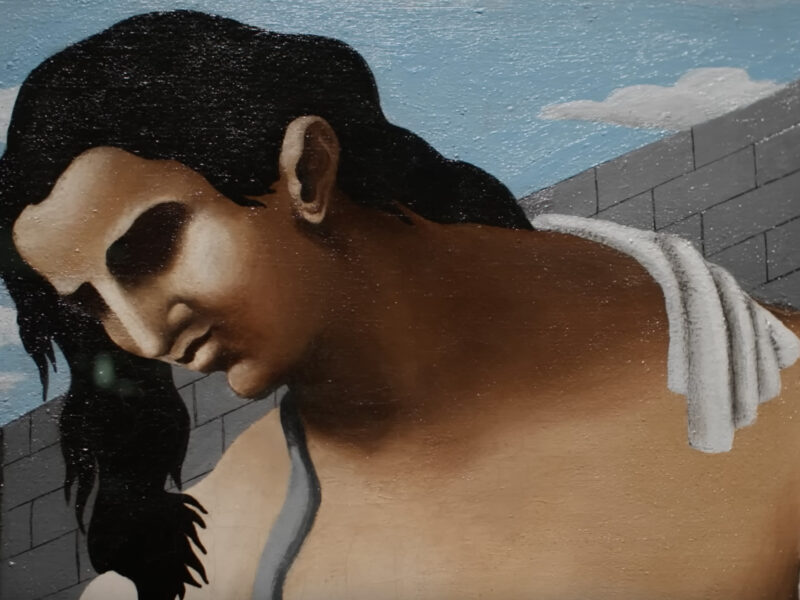Katsadima | Everywhere there is loss
Loss: Four letters for four seasons and a day, that is, for both abstract and calculated time. The story of all stories. When we start breathing, we are exposed to the after first loss world. Loss takes place for the first time in human life when the baby comes to light from the pure darkness and starts the long journey of loss towards happiness. We cannot be happy unless we lose something, from a condition to an object-subject of parallel feelings and emotions.
To invent
Loss is the game of adulthood. Loss is to drink my coffee in the cup which was my present to dad and now it has come back to me as the Accursed share of Georges Bataille, after his noted loss. While sipping my coffee, I realize the course of time but I also make a present to my memory, I renew the old fact which cannot change by adding new content and remaking the object handy. Memory needs symbols to stay and inhabit.
To proceed
To put it in other words, then, loss is a process and not a fact. Loss is what happens as ritual, as sentiments’ ontology and poetry. The experiment to stay alive is dependent on the process of how we experience loss.
Starting from our childhood, we learn foreign languages part of which we will forget possibly but our life choices will alternatively make us live in more than one world. Therefore, living in parallel worlds, cities and languages means that we must deal with loss in some way, to become reconciled with our partial selves dispersed and be able to regather the pieces. No true story comes from an undivided world. It is in our hands how we treat the present of potentialities and adopt a code thinking attitude.
To recognize
If there was a definition for people ‘‘trained’’ in or -better saying- accustomed to loss, perhaps it would be that of ‘‘alive’’, given that they are obliged to carry the burden of those left under their collective body seen as past, present, future; as a surface of time and no time at once. After the loss of a (favorite) person, we used to be close to, we do not miss only that face but also the smell, the body gestures as well as the way that used to conquer space of our importance. Even more, we miss our participation and involvement in that dual relationship. We miss the place as participation field and space as social present.
On the other hand, when the matter of loss is related to a part of our human body, then, the story tends to unravel itself as a complicated one while the mind remembers and repeats what used to do before the loss incident.
Everywhere there is loss
In every situation and human relationship if we cast light on, we will deduce the loss feature(s), because contemporary life is a mirror of discontinuity. If we vote for life, we vote for loss and its consequences. On the contrary, the continuity framework is that of no change where life does not take place as a plant like and history phenomenon.
Parthenon and the Greek Marbles
In conclusion, would like to connect the loss subject with the Greek Marbles and Parthenon – there are no Elgin Marbles as Melina Mercouri pinpointed-. The Greek marbles’ story depicts the loss atmosphere very well as their dismemberment expresses fully what we experience during the loss effect. More specifically, we live with our shadows as Marbles do live with their missing parts. The missing parts are still here; they affect the whole and intervene in the social engagement action. This is the reason why the Greek Marbles’ story -that Melina Mercouri started- reflect better than any other story the life of all contemporary people of the Occidental world living in modern cities of the capitalist economy.
Never the same but…
We are never the same but as a reward for the silence revisited, we enrich our imagination. Never before had memory been so close to imagination. It seems that we rebuild memory as a kit of emotional and everlasting scenes. Loss is what feeds imagination as a mood of truth. Loss is the other side of love.
Foto di Oscar Keys





